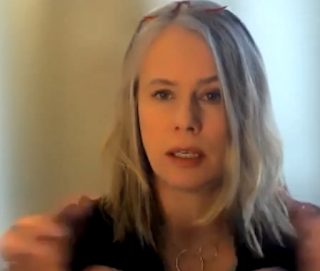We have an extraordinary, trajicomic situation on our hands tonight involving three Iraqi-Canadian gentlemen and three birds.
A lost pigeon adopted us mid-April when it found birdseed in our garden. I have been feeding it ever since, and it has not left, making itself at home, often reminding me to serve it food and water, but not letting anyone come close enough to catch it. The other day in hot weather it distinctly asked me for a bath and, when I provided this, it sat in it with great pleasure for five minutes before fluffing up its feathers to preen and getting out again, wildly flapping its wings to get rid of the wetness, rather like a dog shaking itself after a swim in the river.
It was months before I could lure the pigeon close enough (it had started eating sunflower seeds from my hand before backing off) to decipher the ID tag on its leg, which turned out to be a phone number and the name Samir Ma[+ three more letters]. After a few guesses and some online detective work by Chris, we got through to the person whose name and number this was; he does keep pigeons and lives seven hours drive away, too far a distance for such a bird to have travelled unaided; we then discovered that it had been sold for $50 along with a large number of other fancy pigeons to a man who lives in Barrhaven on the edge of Ottawa.
Because none of the men in this story (except for Chris) speaks English as his first language, communications have been another challenge.
I asked Samir for the phone number of the Barrhaven gentleman and called him this morning, woke him from a deep sleep, I fear; he was fairly incoherent and apologised later. He eventually sent me a text message asking for a photo of our resident bird. When I sent it he replied with the classic (British English) phrase: ''That is not my pigeon!'' And in any case he did not want any more pigeons because a doctor had advised his wife to avoid them.
Reporting back to Samir, I expected to hear no more, but this evening a third gentleman, who lives in a more accessible part of Ottawa, contacted me to say he was coming over straight away to catch our bird for his friend. He arrived with net and cage after a difficult drive in the rush hour, twice calling us to ask the way to our house, but failed to do any catching. As I'd predicted, our pigeon approached the seeds we put out for it but as soon as it detected a twitch of the net it flew up onto the roof, of course. And so on, multiple times. This creature is not stupid and appreciates his freedom (after four months we finally have confirmation that he's male).
The third pigeon fancier then proposed he should drive back home to fetch two tame pigeons that he promised would lure ours down to join them. Our feathered friend did notice his would-be companions, the ''Indian'' one fluffling out her tail most seductively, but he would not play at this game.
After a long wait in the dark, in the drizzle, with a cup of strong coffee I had made for him, the poor bird-catcher has now left me with the net and cage, taking his two other birds home. They hopped onto his arm as good as gold and he held them both in one hand as he left. Apparently they will sit still in the car, no problem. Our male pigeon is back on our bedroom window ledge completely out of reach, sheltering from the rain and settling in for the night.
Now what? We have to set off on a week's trip away in a couple of days, leaving any birds and other animals there may be on our property (a mouse has just scavenged for the remaining seeds on the patio) to their own devices, and the pigeon may not survive our absence.
To be continued.































